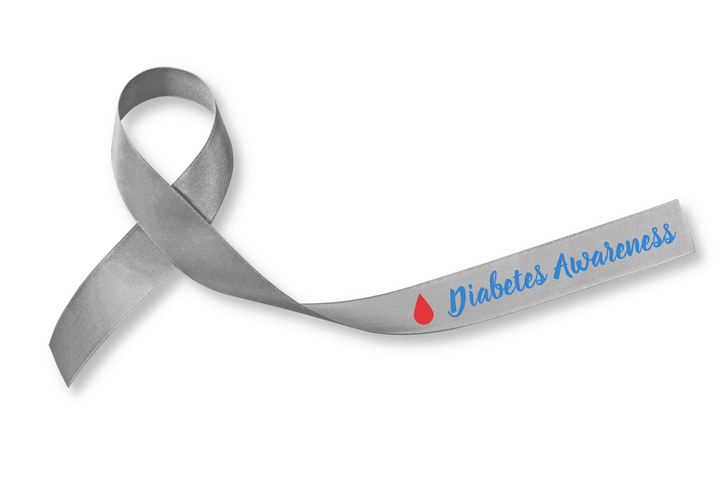News
Self-Care Tips for American Diabetes Month
Pharmacy Students Offer Suggestions for Staying Healthy During Covid-19 Pandemic

November is American Diabetes Month. As the Covid-19 pandemic continues, individuals suffering from diabetes are especially at risk. Below are tips for managing diabetes and staying well during this difficult time, compiled by fourth-year Touro College of Pharmacy (TCOP) students Gabrielle Murakhovsky, Naureen Islam, and Stephano E. Pelissier, under the guidance of TCOP professor, Dr. Catherine Liu.
Diabetes Management Best Practices
Improve Your Diet
Select healthier sources of protein and carbohydrates such as lean meats, fish, whole grains, fruits, and vegetables. Be aware of portion sizes as well. Cut down on foods that are low in fiber such as white rice, bread, and highly processed cereals.
Reduce Daily Salt Intake
Too much salt increases your risk of developing high blood pressure, which can increase the risk of heart disease and strokes. The 2020 Dietary Guidelines for Americans, a nutrition guideline created by the USDA and the Health and Human Services Department, recommends consuming less than 2.3 grams of sodium per day. A significant source of salt in a person’s diet is from pre-packaged food, so be sure to check the labels of the food you buy.
Limit Alcoholic Drinks
Drinking too much alcohol is a risk factor for developing heart disease and cancer. The American Diabetes Association recommends no more than one alcoholic drink per day for women and no more than two drinks per day for men. One drink is defined as 12 ounces of beer, or 5 ounces of wine, or 1 ½ ounces of liquor.
Drink More Water
Stay hydrated. It is generally accepted that most people should drink about eight glasses of water during the day.
Be Physically Active
Exercise can help manage your diabetes, reduce your risk of cardiovascular diseases, and provide an emotional boost. Set a goal of at least 150 minutes of moderate-intensity activity each week. Activities that raise your heart rate, like running or biking, are best.
Resource: 10 Ways to Eat Well with Diabetes
Medication Management During COVID-19
Monitor Your Blood Sugar
Your blood sugar fluctuates frequently. Make sure you have adequate medications and treatment supplies at home to treat high or low blood sugar. Treat low blood sugar using glucose tablets or four ounces of orange juice as directed by your provider. Treat high blood sugar appropriately following your provider’s recommendation.
Take Your Medications
With friends, family, and neighbors getting sick with Covid-19, it is especially vital to stay on top of your own medications.
Clean and Disinfect Your Diabetes Supplies Periodically
It’s important to wash your hands thoroughly before and after administering insulin or injectable medications.
Ensure Extra Supplies
Given the pandemic’s effect on local stores, it is important to have some supplies ready. Check your pharmacy and your insurance to coordinate your early refills.
Know Your Over-The-Counter Medications
OTC medications can affect your blood glucose level. These include cough syrups (except those labeled sugar-free), cold medications, decongestants such as phenylephrine and pseudoephedrine, aspirin in large doses, and Advil (ibuprofen).
Resource: Diabetes and Covid-19 Tips
CDC COVID-19 Guidelines
- Clean your hands often with soap and hot water for at least 20 seconds or use a sanitizer that is at least 60 percent alcohol.
- Avoid touching your eyes, nose, and mouth with unwashed hands.
- Avoid close contact and practice social distancing (staying at least six feet apart).
- Cover coughs and sneezes with a tissue. (Then clean your hands!)
- Clean and disinfect frequently touched surfaces daily, and dirty ones immediately.
- Stay home if you’re sick.
- Separate yourself from others if you have been diagnosed with COVID-19 or think you may have symptoms.
- Wear a face mask covering your mouth and nose outside of your home and when you're around people who don’t live in your household, particularly in indoor settings where social distancing is harder to maintain.
- Call ahead about medical attention unless it’s a medical emergency.
Resource: CDC Guidelines
Mental Health Management
According to the Centers for Disease Control and Prevention, people with chronic conditions such as diabetes might be at increased risk for stress during the pandemic. Some important ways to decrease anxiety and depression include:
- Stay in touch and connected with loved ones
- Use technology such as video calling to connect with friends and family
- If struggling with low mood, anxiety, or unexplained fatigue, request an appointment with your provider to discuss your mental health. Mental health care can be available via phone or video visits.

